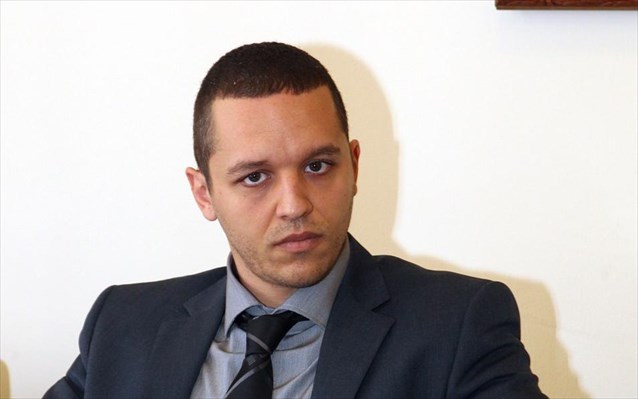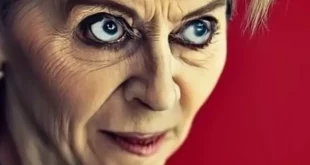Daily Stormer
May 13, 2014

Interestingly, Nigel Farage has become a hero to young Germans opposed to the EU.
I wish that Kasidiaris was their hero instead, but we’re at least getting somewhere.

Euroscepticism is taking hold even in the country at the heart of the European project. And one of the continent’s chief Eurosceptics, British politician Nigel Farage, has become an idol to some young Germans – to the consternation of many others.
For rebels, they appear extremely polite, are impeccably dressed and display a distinct lack of piercings or tattoos.
Germany’s Junge Alternative (JA), or Young Alternative, may be dissidents – a Eurosceptic youth movement determined to overturn Germany’s long-standing pro-European orthodoxy – but they are very conservative ones, advocating a crackdown on immigration and crime.
In fact their stance has earned them a particularly bad rap from the national press. In the short year since the group’s launch last June, the JA have repeatedly been accused of being “too far right”, politically regressive and anti-feminist.
The organisation is linked to the country’s first Eurosceptic party in decades, the Alternative fuer Deutschland (AfD), or Alternative for Germany, which wants the euro broken up.
But it remains an independent movement and even the groundbreaking AfD regards it as something of an unruly offspring.
“The media sometimes portray the AfD as far-right and, because we are more direct and more right-leaning than the AfD, we’re seen as extreme-right – but that’s not the image I have of us,” says Sven Tritschler, the JA chairman for North Rhine-Westphalia, Germany’s most populous state.
The state’s biggest city, Cologne, was the starting point for the AfD’s European election campaign on 27 April. A fifth of all party members are based in surrounding North Rhine-Westphalia, and the AfD is hoping to further increase its support here.
…
The German Eurosceptics are highly critical of the EU’s bailout policies, demanding the dissolution of the euro, a halt to EU expansion, and national immigration quotas.
But they strongly reject accusations of extremism. The JA’s national leader Philipp Ritz says the JA also has “more liberal” attitudes, like supporting giving asylum seekers the right to work.
“Don’t bother joining if you’re looking for racism or homophobia,” adds Mr Tritschler.
Instead, the JA is looking to British Eurosceptic leader Nigel Farage for inspiration.
His anti-euro United Kingdom Independence Party (UKIP) is also expected to score a good result in the May ballot, potentially beating mainstream parties.
The youth organisation invited Mr Farage to speak at a conference in Cologne in late March.
Mr Farage’s appearance sparked a deluge of negative headlines and soured relations with AfD chief Bern Lucke who called the move a “sign of poor political tact”.
“There are significant differences between the AfD and UKIP,” he said.
Mr Lucke has repeatedly sought to distance himself from right-wing populism ahead of the European elections, where his party is expected to reap around 7% percent of the vote.
If successful, the AfD will need to join a pan-European faction in order to make its voice count.
The official party line is that they will opt for the group of conservative reformists, which includes Britain’s governing Conservative Party.
 Daily Stormer The Most Censored Publication in History
Daily Stormer The Most Censored Publication in History


